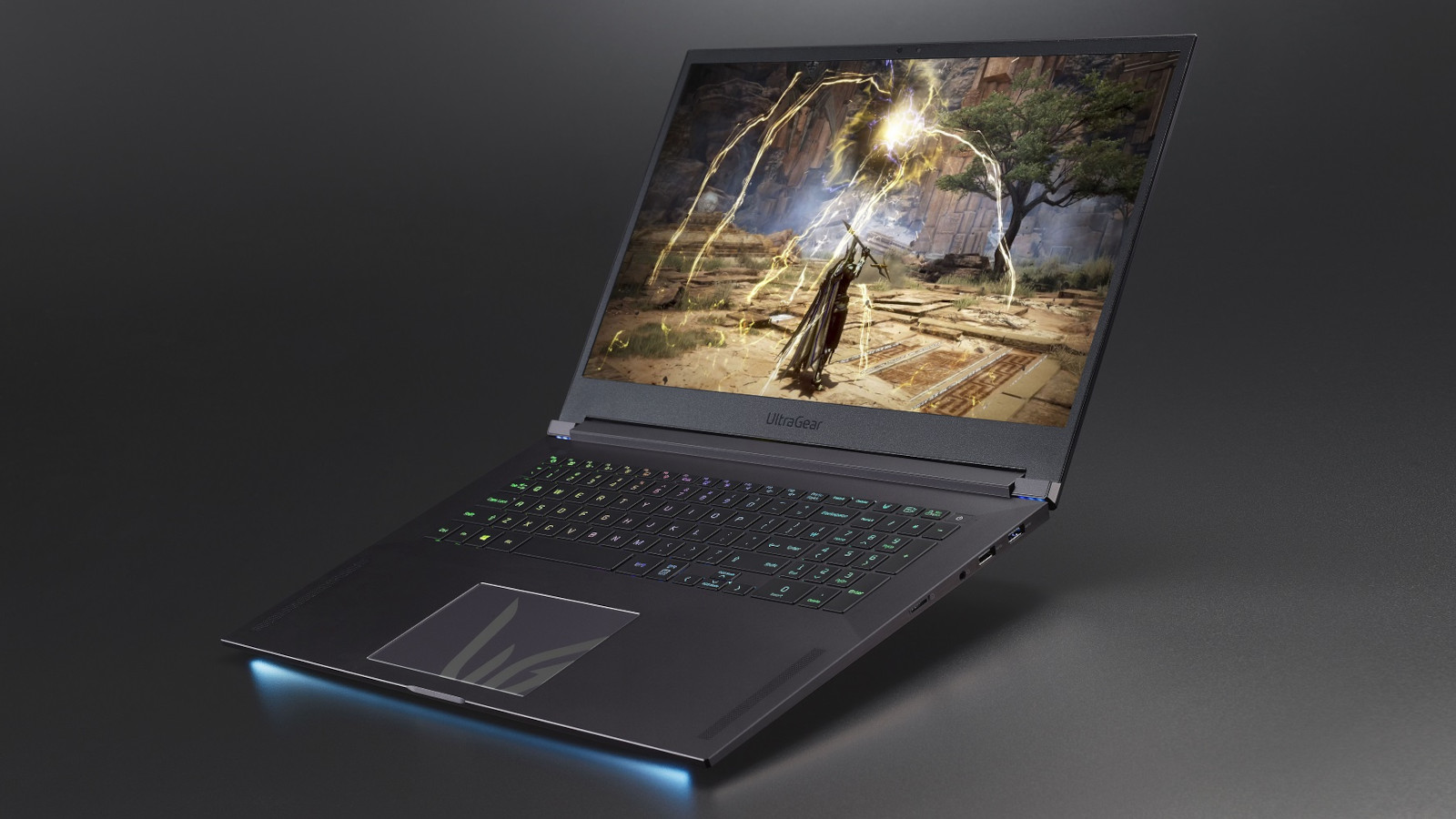LG has announced its first gaming laptop, and it's a BEAST
Putting the 'Ultra' in UltraGear

LG has been dipping its toes into the world of PC gaming for a while with its UltraGear range of products, but today the company announced its first gaming laptop, listed as the 17G90Q. The UltraGear line has, until this point, either specialized in gaming monitors and a $500 / £500 / AU$720 gaming speaker, so this marks the first additional of actual computing hardware to join the series.
It's no slog either, with the 17G90Q having won the CES 2022 Innovation Award and featuring some of the latest and most powerful laptop components available right now. LG states the laptop will pack up to an 11th generation Intel processor (though the announcement doesn't specify if this will go up to an i7 or i9), as well as an Nvidia GeForce RTX 3080 Max-Q graphics card, dual-channel memory, and an ultra-fast dual SSD setup.
In fact, the wording of the announcements suggests that the 17G90Q might only be made available with the beefy RTX 3080 GPU, though we have contacted LG for clarification.
Other impressive features are the 17-inch displays 1 millisecond response time and 300Hz refresh rate, which can show you all 300 frames-per-second in titles capable of running that well, which will make this an ideal choice for competitive gamers who like fast-paced battle royales and first-person shooters.
A few other details to note are that the display in question is 1080p and has a 16:9 ratio, unlike many of the 2K (1440p) devices we're seeing, alongside the rising popularity of 16:10 screens.
There's no word on pricing yet, but the components and features suggest this isn't going to be a cheap piece of kit so if you want to pair an LG gaming laptop with your existing LG UltraGear gaming monitor then you'd best start saving your pennies.
It's expected that official pricing information and other details such as an expected release date (currently listed as 'early 2022' for the United States and South Korea) for the 17G90Q will be announced at CES 2022 during LG's keynote at 08:00 PST on January 4.
Get daily insight, inspiration and deals in your inbox
Sign up for breaking news, reviews, opinion, top tech deals, and more.
Analysis: Not too late to the game
While the laptop market is hardly lacking in variety, I think LG will do well if they can provide more configurations in its lineup, especially as the current information points to the 17G90Q being a seriously powerful piece of kit. This would put it out of many consumers' price range, but it does have an advantage up its sleeve.
The chassis design seen in the images released by LG is rather uninspiring. A weird blessing for sure, but a few years ago this would have put it at a large disadvantage against rival offerings from flashier brands like Asus ROG and Alienware. Now we're seeing more 'hybrid' style gaming laptops hitting the market these days that target users who want a single, powerful device for both work and play.
The lack of loud RGB lighting on the chassis and otherwise garish, 'gamer' design aesthetics means that working professionals and students will be more likely to pick this up, which could, in turn, mean that a slightly higher pricetag won't be a death sentence. LG needs to be careful with how much it's selling the 17G90Q for though, as there are other 'hybrid' laptops on the market that are budget-friendly, such as the Asus TUF line.
Ultimately, there's no way of telling how this offering from LG will be received yet, but as CES looms closer we're expecting the announcement of 12th generation Intel laptop processors and its own Intel ARC graphics card, this does feel a little late in the year to be announcing a device with the current generation of hardware that's on the cusp of an upgrade. Let's hope that we won't have to dig too deep to see what this LG gaming laptop is capable of.
- Our pick of the best gaming laptops in 2021 so far
Jess is a former TechRadar Computing writer, where she covered all aspects of Mac and PC hardware, including PC gaming and peripherals. She has been interviewed as an industry expert for the BBC, and while her educational background was in prosthetics and model-making, her true love is in tech and she has built numerous desktop computers over the last 10 years for gaming and content creation. Jess is now a journalist at The Verge.
